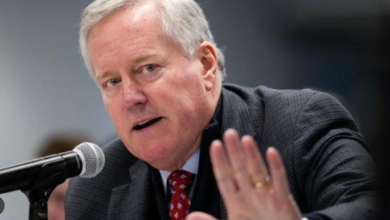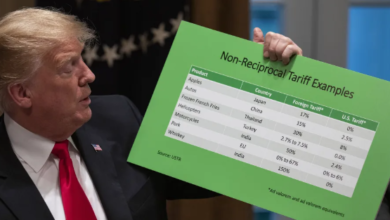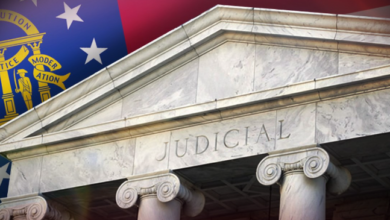A Ron DeSantis Crackdown On ‘Election Fraud’ Looks Increasingly Shaky


A story in Florida deserves a lot more attention than it’s getting.
It’s about Ron DeSantis, the state’s Republican governor, and the arrest of 20 Floridians. The crime they stand accused of committing is a form of election fraud ― specifically, voting even though past criminal convictions made them ineligible.
“Today’s actions send a clear signal to those who are thinking about ballot harvesting or fraudulently voting,” DeSantis said at a news conference in August, touting the arrests as the first big score of an election integrity task force he created to great fanfare last year. “If you commit an elections crime, you will be prosecuted to the fullest extent of the law.”
The arrests, the statements and the sentiments behind them are not especially surprising, given that DeSantis has always presented himself as a tough, “law and order” governor. And they are likely to endear him to conservatives who think America is awash in voter fraud, usually committed for the sake of helping Democrats and usually involving voters from minority groups.
Sure enough, most of the 20 arrested Floridians are Black, according to media accounts.
But the rationale for their arrests hasn’t held up well to scrutiny. Over the past few weeks, several local and national publications have pieced together the stories of what many of these Floridians actually did and why. It looks less and less like episodes of nefarious election tampering and more and more like instances of honest confusion about what a new voter law says.
It’s the kind of situation that might prompt some introspection and maybe even an apology from some elected officials. But DeSantis hasn’t even acknowledged the arrests might have been a mistake, let alone suggested that any of these Floridians deserve an apology ― which perhaps says a lot about his style of leadership, as well as about the many conservatives who cheer it.
An Effort At Redemption – And The Confusion It’s Created
The backdrop to this drama is Florida’s history of permanently denying voting rights to convicted felons.
For years, advocates sought to end that practice, partly by arguing that people who paid their debt to society deserved a chance to rejoin it and partly by noting the disparate impact of disenfranchisement on Black voters. (Many laws blocking convicted felons from voting trace back to the post-Reconstruction era, when state officials were trying to stop the recently freed slave population from voting.)
In 2018, these advocates were able to get a constitutional amendment allowing the restoration of voting rights onto the ballot. It passed overwhelmingly, with nearly two-thirds of Floridians voting for it. But the amendment contained two important exceptions: Those convicted of felony sexual crimes or murder remained unable to vote. The 20 Floridians who were arrested in August for voter fraud had been convicted of these classes of crimes, according to charging documents.
“Clearly those were illegally cast votes,” DeSantis said at a Wednesday news conference where the arrests came up. “I don’t think there’s any question about that.”
There may not be. But in stories about some of the arrests by reporters from the Miami Herald and Tampa Bay Times, Politico and The Washington Post, a clear pattern has emerged.
These Floridians say they had no idea their crimes made them ineligible to get back their voting rights, in part because the state approved their applications and issued them new voter registration cards. They say they learned of their legal jeopardy only last month, nearly two years after casting ballots, when police showed up ― in at least one instance, in the form of a SWAT team banging on their door.
“We don’t think that people should be prosecuted while the state has a system in which the state itself is unable to verify voting eligibility on the front end,” Neil Volz, deputy director of the Florida Restorative Rights Coalition, told HuffPost.
One likely reason these Floridians got their voting cards is that the state agency in charge of elections has been overwhelmed trying to make the new system work. And that’s in no small part because of a law that DeSantis and his allies enacted after the constitutional amendment passed. The law requires felons to pay off old court fees before they can get voting rights; figuring out who owes what has been an administrative nightmare.
“If the state was doing its job, those individuals would have been alerted they were not eligible and removed from the rolls before they even had the chance to vote,” Patrick Berry, counsel in the Brennan Center’s democracy program, told HuffPost in an email.
Even some Republicans think officials should go easy on prosecutions until the system is working better: “I think it’s really up to law enforcement and state attorneys to exercise a level of grace and mercy where they believe that their intent was not to defraud,” Jeff Brandes, a GOP state senator from St. Petersburg, told the Herald.
DeSantis, by contrast, has made no such concessions.
Instead, he has said responsibility for screening applications lies with local authorities, not the state ― a stance the state’s own elections chief contradicted in an email. He has also blamed independent nonprofit organizations that have been helping convicted felons file their applications, saying these groups need to be more vigilant about making the law’s exceptions clear.
When asked in that Wednesday news conference about the arrests, he defended them yet again, saying they sent an important signal: “I think this will help show people and disabuse them of maybe any lack of clarity that they have about what the rules are in Florida,” DeSantis said.
A Familiar Pattern On Voting Rights – And Politics
If the media reports and affidavits are correct and the legal system works like it’s supposed to work, then the lack of clear intent of Florida could ― and probably should ― spare the Florida 20 from more jail time. But that’s no sure thing.
The proof comes from Texas, a state where leaders have the same record of fighting voting rights expansion and where a woman received a five-year prison sentence for voting illegally despite strong evidence she didn’t realize she was breaking the law.
Many advocates for voting rights are furious with DeSantis, and not just because of what the arrests have meant for the lives of these Floridians. They also worry these actions will have a chilling effect on people who really are eligible to get back their voting rights.
“Certain people have the law enforced against them. Others don’t.”
– Cecile Swoon, Florida League of Women Voters
“The state is prosecuting people for honest mistakes, creating more fear and intimidation and further undercutting the promise of Amendment 4,” Berry said.
Some advocates have also been noting that DeSantis didn’t make the same fuss about a handful of voter fraud cases involving residents of The Villages, whose relatively affluent residents tend to vote Republican. (In each of those cases, residents had voted in two different states, with intent unclear.)
“You have a situation that’s been demonstrated time and time again,” Cecile Swoon, president of Florida’s League of Women Voters, told HuffPost. “Certain people have the law enforced against them. Others don’t.”
Whether statements like that have any effect on policy or politics, of course, remains to be seen.
DeSantis is up for reelection in November, and, despite some recent polling showing a relatively tight race, most analysts expect him to defeat Democratic nominee Charlie Crist. And that will position him well to seek the Republican presidential nomination, perhaps as soon as 2024.
A record of arresting people for unintentional voter fraud probably won’t hurt his standing with many conservative voters. It might even help.
[ad_2]
Source link





